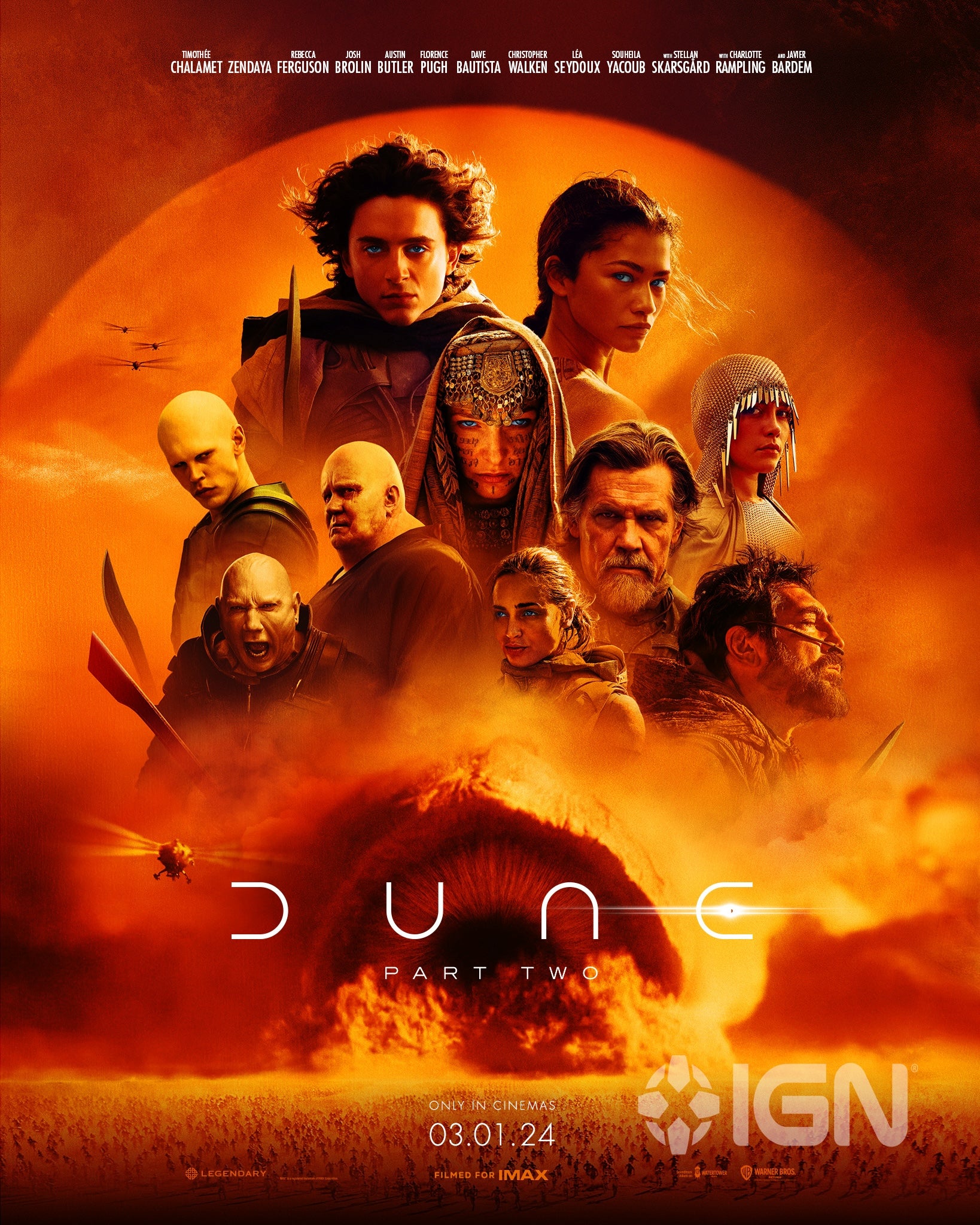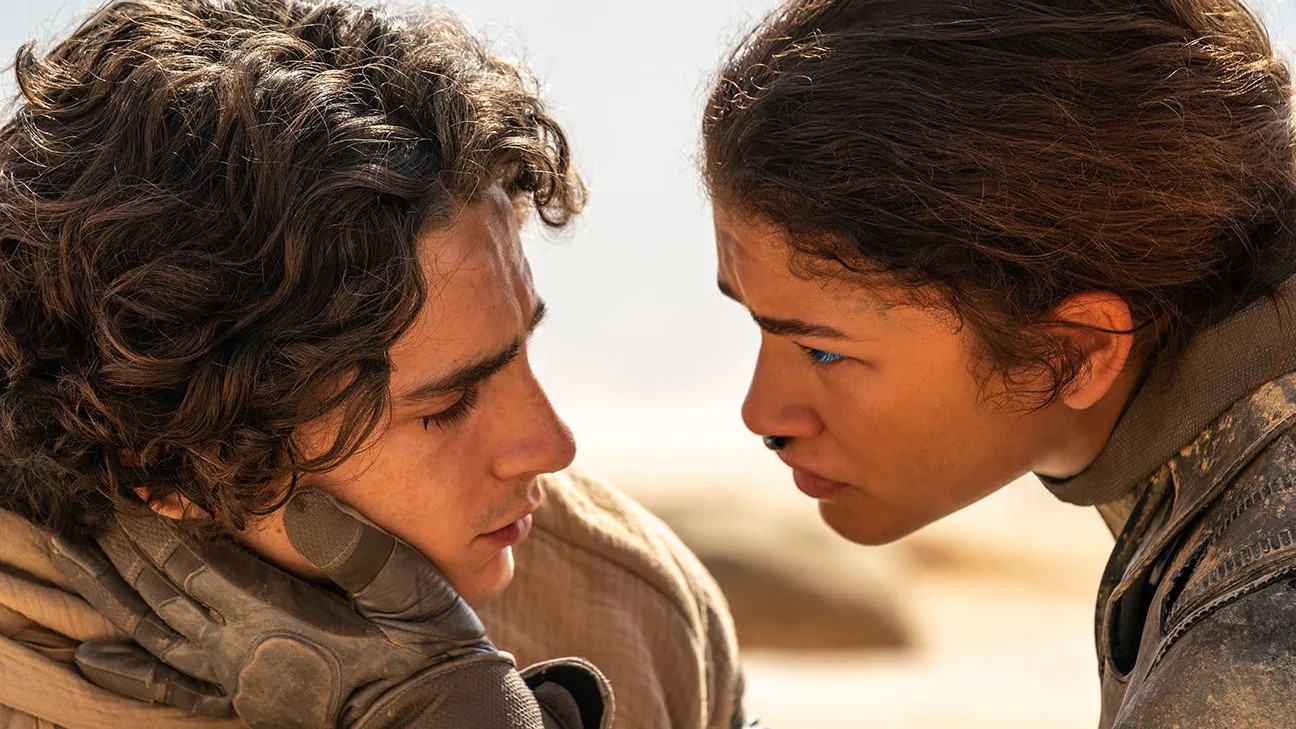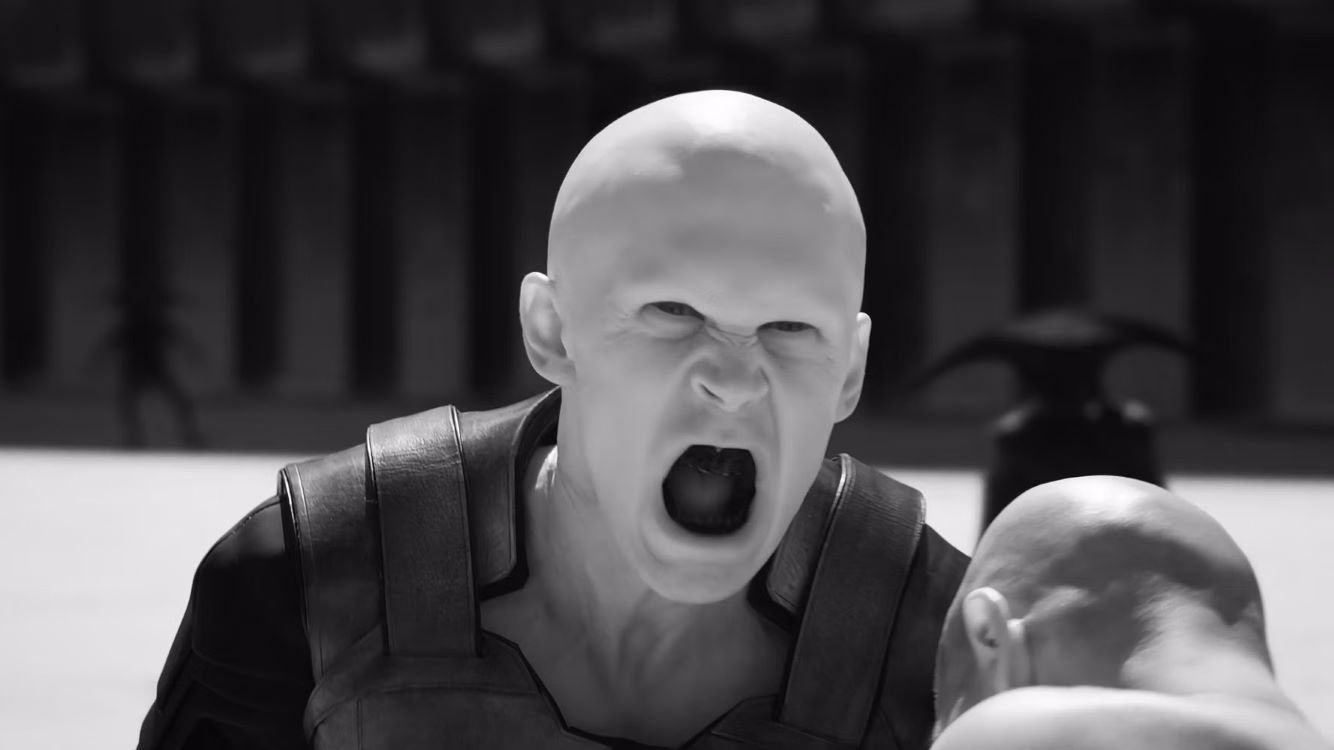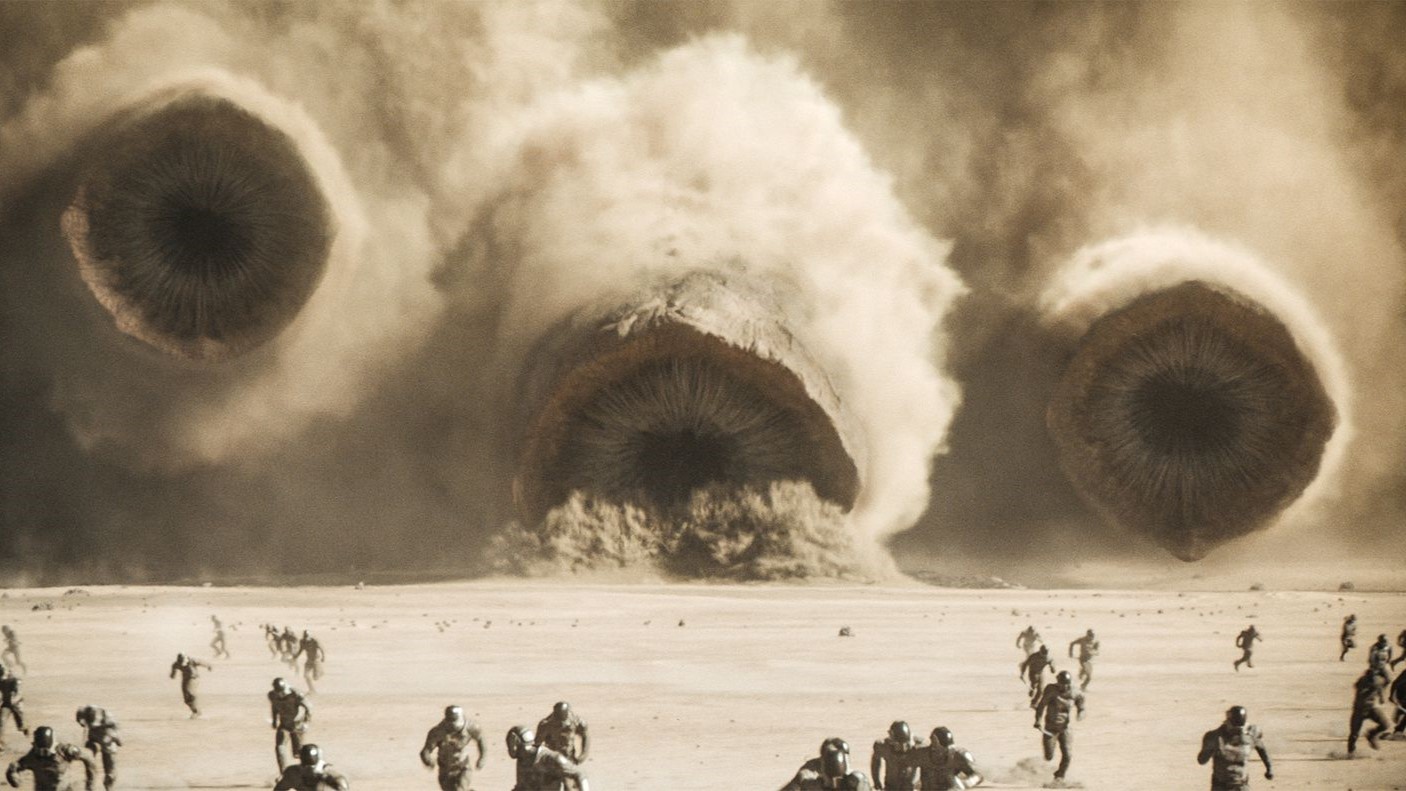
Director: Denis Villeneuve
Writers: Denis Villeneuve, Jon Spaihts (script), Frank Herbert (novel)
Cast: Timothée Chalamet, Rebecca Ferguson, Zendaya, Javier Bardem, Josh Brolin, Stellan Skarsgård, Austin Butler, Florence Pugh, Christopher Walken, Léa Seydoux
Producers: Cale Boyter, Patrick McCormick, Denis Villeneuve
Music: Hans Zimmer
Cinematographer: Greig Fraser
Editor: Joe Walker
Cert: 12A
Running time: 166mins
Year: 2024

What’s the story: After the betrayal and destruction of The House of Atreides on the planet Arrakis, Paul Atreides (Chalamet) and his mother Lady Jessica (Ferguson) join the native Fremen. The Fremen’s desire to rout the tyrannical House of Harkonnen, who mine a precious spice on Arrakis, converges with Paul’s thirst for revenge against those who killed his father and friends.

What’s the verdict: Reviewing Dune back in 2021, we said Denis Villeneuve’s astounding sci-fi epic most closely resembled the work of one Francis Ford Coppola (when in his prime). The comparison remains apt for Dune: Part Two. If Dune: Part One’s relatively simple tale of intrigue and betrayal was The Godfather, this sequel’s scope and ambition makes it The Godfather Part II. Which turns out to be both a blessing and a curse.
Villeneuve and co-writer Jon Spaihts admirably grapple with the societies and the mysticism of Frank Herbert’s mammoth source novel. This is no easy task, and after a brief action skirmish at the top of the film, the plot then patiently lays out its pieces to keep head-scratching to a minimum.
Chief amongst these pieces is the struggle of Paul Atreides, buring with rage at the Harkonnen. While dealing with the fact he bears striking resemblance to the prophesied Messiah in the religion of tribal leader Stilgar (Bardem, elevated from cameo in Part One to major force in Part Two). Also troubling Paul are spice-fuelled visions of destruction, which may foretell consequences of his own future actions.
Paul’s mother, Lady Jessica, becomes the Reverend Mother within the Fremen, acting as Herald for the coming Messiah. But, how much of this is manipulation and how much belief?
In other areas of the galaxy, the Emperor Shaddam IV (Walken, in hushed-mode) frets that his part in the destruction of The House of Atreides could undo his power. His daughter, Princess Irulan (Pugh, providing a handy “Previously On” opening narration), is his chief advisor, but again, what motivates her?
And as Fremen attacks on mining vessels threatens the Harkonnens’ lucrative stewardship of planet Arrakis, Stellan Skarsgård’s gargantuan Baron Harkonnen ponders whether to replace current commander Beast Rabban (Bautista), with the Machiavellian, psychotic Feyd-Rautha (Butler).

These are only the major plot points, there are side-hustles and subplots around religion as a means of control that occupy the likes of Léa Seydoux’s seductress and Zendaya’s more-than-just-love-interest, Chani.
But, where Dune: Part Two stumbles is in weaving all these plot threads into one cohesive tapestry. Even with the 166-minute running time, some supporting characters seem short-changed, and certain subplots feel hastily resolved so the A-story can be wrapped up by closing credits.
Here, a quick public service announcement: although telling the entirety of Frank Herbert’s Dune, this is definitely the middle part of a trilogy. Which came as a surprise to myself and those around me in the screening I attended. Dune: Part One ended on a cliffhanger for an, at that point, unconfirmed sequel. Doing it again is ballsy, but will catch audiences off-guard.
Hopefully Warner Bros. will give Villeneuve the go-ahead for a Dune Messiah adaptation. Despite some grumbles, Dune: Part Two remains fantastic (or, if you will, sand-tastic) blockbuster filmmaking. Like the first movie, Villeneuve’s world-building is both breathtaking and believable. Aided by his first-rate cast, the director brings the world of Dune to life and populates it with a gallery of unusual, memorable (and wonderfully costumed) characters.
Timothée Chalamet again demonstrates his narrow shoulders can support a major Hollywood picture. As adept at conveying Paul’s psychological upheavals as at the action spectacle (a sandworm ride is one of many standout set-pieces), he is an actor of exciting promise. Zendaya also proves she can bring her Euphoria talent to a blockbuster outside the MCU. Her character’s arc is trickier to handle here than when Herbert was writing Dune, particularly in the denouement (no spoilers though). Representing the old guard, returnees Javier Bardem and Josh Brolin deliver sterling work.
Of the newcomers, Austin Butler gets the most flamboyant screentime as Feyd-Rautha. Hairless and ivory-skinned, he is a far more intimidating adversary for Paul than in David Lynch’s 1984 movie, in which the character was played by, er… Sting… in vulcanised rubber underpants.
Lazy Middle Eastern mysticism could be a charge levelled at the film if not for Villeneuve’s sure handedness in creating the Fremen culture, and ensuring agency is afforded those characters. The sheer otherworldliness also means Dune: Part Two’s spectacular action sequences sidestep comparisons with the on-going Middle Eastern crisis. While we could have done with just a few minutes more mayhem, there is big-screen spectacle in this film that, as with its predecessor, puts superhero fare to shame. All the more eye-popping given the bizarro costumes, insectoid space craft design, and often truly alien visuals. Sandworm fans will be happy they get more stuck in this time.

In this way, the movie recalls the work of cult director Alejandro Jodorowsky. Fitting, as Jodorowsky attempted to get a Dune project off the ground in the 1970s, even going so far as to create a book of illustrations and ideas to convince movie bosses of his vision. His movie never got made, but the documentary Jodorowsky’s Dune shows how amazing it was in the director’s head. And how impossible it would have been to achieve in a pre-Star Wars, pre-CGI world.
But, Dune: Part Two has flashes of what that film may have looked like. Not least in a gladiatorial fight to the death on the Harkonnen home world, a sequence rendered in inky monochrome beneath a black sun. Plus, some violence that must have given the BBFC pause before awarding the 12A rating.
A middle-chapter film then, rather than the ending we all thought we were getting, Still recommended though as a dazzling, brain-engaged delight. And once again WB, please make that third part.
Rob Daniel
Letterboxd: RobDan
Podcast: The Movie Robcast
